
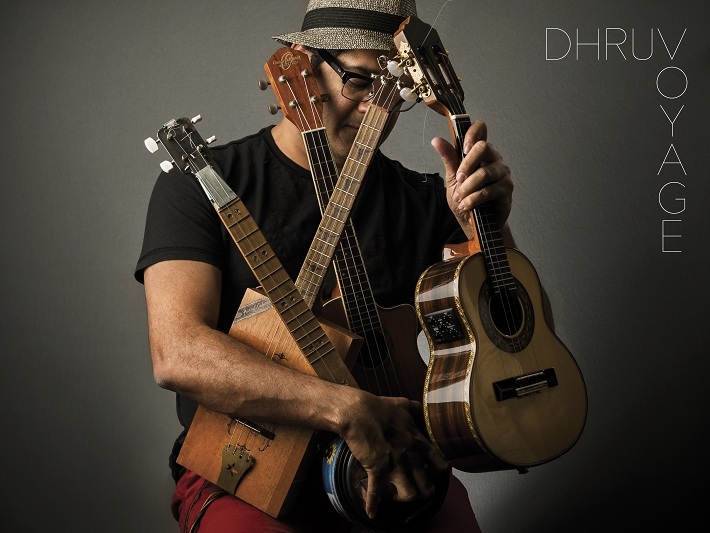 Photo Courtesy: Varun Mehta & Arnab Chaudhary
Photo Courtesy: Varun Mehta & Arnab Chaudhary
Bann Chakraborty: How has Bombay influenced you? Or, has it had any influence on you at all?
Dhruv Ghanekar: We live in a vaccum. I don’t know how much the city has influenced me. It’s hard to answer that, perhaps because we are so close to it. I think everybody’s here, it’s sort of a necesssary evil to be in Bombay because everyone’s here and they hate it; but they’re still here. It’s almost like that. Most people I speak to complain about Bombay being such a crap hole. The city doesn’t give you anything. It’s just the people that give each other that, and the city doesn’t have much to do with it. I think the city that we loved, has long gone. The best days of Bombay were yesterday, it just gets worse with every passing day. So, I think the only thing going for Bombay are the people that are still here. The community.
BC: Why did you choose to work with musicians abroad?
DG: If you want to make salmon, you want to take that salmon and season it with oregano and basil. You don’t want to take a nice piece of pink salmon and then add laal mirchi and dhaniya. Maybe it might taste good, mabe it won’t. But, the point I am making here is that there is something very specific that you have in mind. When I heard Karim and Linley play the things they play, I wanted them to do that specific thing they do so well. There is a specific groove Karim plays that he is a master of, and it’s the same thing with Linley. He’s a master of 6/8; a lot of the songs are strangely in 6/8 on this album. So, I wanted a specific thing on each song, and I treated each song on its own merit. It’s not about doing something that I can sort of get by with, I really wanted something specific. Another example is that of casting singers, which in a lot of ways is like casting actors. The singer is then the lead actor of the act. Therefore, the singer has to specifically do one thing that they are great at. Nobody can sound like Ila Arun, for example, and the same thing with Kalpana – who is an incredible talent. The same thing also applies to Raul Midon. So, it came from casting, to achieve that particular sound.
BC: When you got about writing this album, did you already have it all planned out, like the number of tracks and the people you want to work with?
DG: No. I had a lot more tracks on the album before. If you remember, I had recorded another project with Gino and Sheldon, a trio project. That’s an EP which I’m also putting out alongside the album. That’s like a jazz rock trio, live recording. That was sort of supposed to be part of the album, but as the album started evolving I was forced to remove these tracks because it was not sitting with the rest of the album. So, there were ten or so tracks that I had to remove from the album that didn’t sonically fit in.
BC: Where did the mixing and the mastering take place?
DG: Mixed here. Joe and Ishan mixed parts of the album. It was mastered in London at Metropolis.
BC: Were you a part of these processes?
DG: You can ask Joe about how bad I am with mixing and stuff.
BC: Tell us more about that.
DG: See, mixing is one of the most important processes. Firstly, when you are writing your own music, as any musician knows, it’s very difficult to finish it. I have a rule, that you don’t finish a song, you have to abandon it. That’s the only way to do it. You need to say, “Stop.” Even in the old days I’m sure there would be a manager or somebody who’d say, “Dude, just stop now.” The mixing has taken an incredibly long time. I am very fortunate I have my own place, and I can take my own time. It’s taken time because there were a lot of elements, and a lot of it had to do more with subtraction than addition. We’ve only been removing stuff from what we’d recorded. You think over it and realise something is fighting with something, but you’re attached to it. So, you have to let go of things.
BC: Is the decision about letting go, or is it more about creative calls?
DG: The descision is about objectivity, which one lacks when you’re so close to the project. In this case, I am the artist and the producer; I’m everything.
BC: How come you never thought of getting another producer on board?
DG: I would love to. I would love to work with someone at some point.
BC: Why not for this album?
DG: Actually, the process itself is getting refined with this album. A lot of the pop writing happens with writing the bare bones of the songs first, and then you decide what you want to do around it. In this case, it wasn’t so. At first we’d just record the melody. For example, with ‘Dhima’ it was just a dholak, a harmonium, and Ila ji singing. So, I just moved with that, and literally built the song around her vocals. So, for different songs the process is different.
BC: Do you think a separate producer wouldn’t have worked for this?
DG: Maybe for another project. For a project that is much more focused. Let’s say I am doing a vocal project that’s got 20 songs, and I need someone to come listen to the 20 songs and maybe pick out ten. Honestly, what costs money is when you start producing stuff because you have to hire musicians and stuff. In the old days you had to hire studios, but thankfully that’s not there now. But, let’s say I want to work with some musicians out of which the producer will suggest, “Don’t get this guy, get this guy who’s better with this particular thing.” And, take all those descisions of casting musicians.
BC: You think you would do that for your next album?
DG: I think I’m really obsessive that way about my own stuff. But, having said that I have to say that I don’t write stuff off. I’d like that. I honestly miss having that second or elderly opinion.
BC: Are there people in particular you play your music for, and look for objectivity and judgement from? How does it work?
DG: I just see the reactions of people. I usually just play the song and stand on the side, and I don’t even listen to the song, I just see how they are reacting. So, there are a bunch of people I do that for. My wife is one of them. She has a fantastiv ear for music, because her family is so musically savvy. My brother also has a really good ear for music. He lives in the US, but I actually send him stuff. He always gives me a super objective opinion. He’ll tell me if it either sucks or whether it’s cool. I usually like taking the opinions of people who are ruthlessly honest. That’s the only way you can do it, otherwise it’s pointless. Obviously there is also extended family. A lot of the suggestions come from Ila ji’s side, Prasoon, and Piyush.
BC: Tell us a little about the music videos you have planned for the album.
DG: A couple of tracks maybe. There is one that is already done. The video for the bengali baul track has already been shot. It’s a really nice video shot in Bengal, and directed by Arnab Chaudhuri.
BC: Arnab from NID?
DG: Right. You know Arnab?
BC: Really well.
DG: Did you also go to NID?
BC: No, I didn’t. But, I’ve known Arnab since I was 20. He’s a great animator.
DG: Yeah, he is. So, he’s made one video for a track off of the album.
BC: Now, you are considered as one of the senior members of the india music scene…
DG: Are you saying I’m fucking old [laughing]?
BC: [Laughing] I know it sounds that way.
DG: That’s cool. It sounds the way it does, I don’t care. I’ve earned my fucking stripes, and battle scars.
BC: As a musician at this stage in your life, how do you see the world? And, what is it that you plan for the future from what you’ve learnt and embibed?
DG: See, I think one of the biggest learnings that I’ve had over the last few years is how one needs to guard themselves from their own cynicism. As we get older we generally tend to get cyncical because we know how it all works, and get a better understanding of how people are. So, you have to guard yourself against this, stay humble, stay hungry, and stay foolish. That’s one thing that I follow everyday, I wake up in the morning and tell myself to stay humble. It doesn’t matter what you’ve done.
BC: Do you think there has been any change in the kind of hunger that you had started with?
DG: Not really. I mean I’m much smarter than when I first started. There is so much experience that I’ve gathered over the last 20 years by doing this. So, that experience can also become part of your ego which you carry around on your shoulder. I actually don’t care about what I’ve done so far. So, I try not to think about anything from the past. For example, since this album is now done, it’s gone for me. Of course, I will talk about it with you and other people, but going forward the only thing I’m conscious about is not looking back because that is irrelevant. Usually, that becomes a kind of baggage, and I don’t want to be that guy.
BC: What would you like to say to the upcoming musicians in India? And, do you listen to any of the music by younger Indian musicians? Do you like any of the musicians in particular?
DG: Yeah, there is a lot kids who are putting out really good stuff. The only thing I’ll say is different from when we were growing up was the sense of community we had, where we would hang out, play music, and talk shop. I find that happening lesser because everything’s become more insular.
BC: It’s also because of technology.
DG: It is. And, that is super critical for growth.
BC: So, essentially you’re talking about something like collaborations?
DG: Yeah, just something as simple as a taking a bus to Pune and jamming with some of the musicians you’ve never met. That trip is the lesson, it doesn’t matter what you did or whether anything came out of it. But, there is a process of doing that, and meeting new people. That stays with you for the rest of your life, and that is very important. Getting out, and just doing stuff for the love of it.
BC: Was the recording process for the album something like what you usually do for, say an advertising firm?
DG: It was something like that, but a little more structured. I sent them the tunes; to be fair, I sent Karim the tunes in advance, and Linley I couldn’t because I could got him literally a day before he played. Karim came super prepared, and he came up with a lot of new ideas. We spent a lot of time on the song ‘Dhima’, with Ila Arun, trying to decide what to do with it. But, generally speaking it was kind of like a session thing, but with a lot of preparation behind it. The preparation is all that matters. This is not the first time I’m doing this, and I’ve done it before when I recorded my first album in LA. We recorded with another great drummer then who I’d sent the material to beforehand. I think, he kind of worked out in his head what he wanted to do which he shared with me during recording. So, I think the preparation is what really matters. Which, in fact, is different from what Indian classical musicians do, for example. They just land up and play something incredible in the spur of the moment. That is a competely different way of doing it. They’re two different worlds actually, you cannot compare them. For example, if I were to ask an Indian classical musician to play intricate parts, he would also have to go back home and work on it. They [album tracks] were not easy tunes to play, by any standard. Linley was actually pissed off with me because he didn’t have enough time [chuckling]. He landed in Paris the night before I spoke to him, when he agreed to play. So, I sent him the tunes which he heard all night and came to the studio the next morning, just having heard the tunes and not having played anything. That guy’s an animal; I mean I’ve never seen a bass player like that. He’s on another level that I cannot even explain to you. First of all, his sound, is like being hit by a truck.
BC: How do you think they felt about your music?
DG: They dug it man. That is also really important for me. The engineer that was on the track, loved the track, and he’s obviously woked with many different kinds of artists.
BC: Was it very different for them, working on this album?
DG: Yes. Similar, but different, if you know what I mean. I had gone in for a specific thing, but I wanted them to do what they did. But, the foundation was different; it was Indian music in a sense, but not exactly. So, it was like a lovely middle-ground that we had found for ourselves. I wouldn’t ask them to play Carnatic stuff. I wanted them to play what they play, but over this different kind of bed, a kind of bed that they usually would not play over.
BC: Tell us a little about the guitar gear you’ve used.
DG: I’ve played a bunch of guitars on this record. I played this guitar that I’d bought a couple of years ago and have been playing. It’s a Cigar Box guitar. So, it’s actually a Cigar box that a guitar has been created out of, which this guy in LA makes. I featured this on the album on a few tunes. Most of the tunes featured my trusted PRS, and some acoustic stuff. In case of amps, I genereally use Mafukes, that’s like my go-to amp. It’s got a fantastic sounding cabinet which I got custom-made for it. So, most of the guitar work was done at home or in Blue Frog.
BC: You didn’t do any of the guitar recordings in Paris?
DG: No. I went to Paris mainly for the drums and bass. That was the agenda. I prefer doing the guitar work in my own space so that I can dial it around, since I like taking my time.
BC: How did you finance the whole project?
DG: It was completely self-financed. Basically, part of the fruits of my prostitution – all the stuff that we do in the day that pays for all of our excesses.
BC: But, you didn’t have a figure in your mind? Or, did you?
DG: [Laughing] You’re asking me difficult questions. It makes me feel guilty. See, I have a completely different and insane reason why I am doing this. My wife has to stop me sometimes. But, the way I see it, this is what I love doing. So, for me it’s like a keeda, you know. I have to do it. If I was doing something else and this was like a fun thing, I would do it differently. This is all I want to do, so I want to be proud of what I do. More importantly, my friends should hear it and be like, “Theek hai.” It’s not coming from a commercial spot at all. It can’t.
BC: Do you think it can’t be done that way?
DG: It can’t. Not in this world. I can’t imagine doing a project like this today; and, from India, it’s impossible. It’ll never be made, and nobody will do it.
BC: But, now that you’ve done it and had some really great musicians on it, do you think you would like to collaborate with music buisinessmen who see some sense in it? Or, would you not go that way at all?
DG: But, what sense? The only sense that could come out of it would be if one song off of the album would become a massive commercial hit, and everybody would sit up and take notice of it.
BC: But, would you even venture that way if that were to happen?
DG: There is full potential of a couple of tracks off of the album becoming commercially successful. There is.
BC: So, why don’t you talk to some of the buisinessmen to make it happen?
DG: I haven’t done it in all this while. I don’t know why. It’s too tedious, because when you take money from somebody, it’s usually a brand. The brand gives you money in return for which they need the brand positioning in whatever you are doing.
BC: So, you don’t want to get into all that?
DG: I don’t know, it just takes away from the sincerity of the music, for me. I guess that was one of the reasons. I’d rather make a small indie style video – like I have done – and do it by myself, rather than do a lavish 20 lac. video with some positioning in the back.
BC: And, you have never approached any labels abroad?
DG: No. You would have to then live there. See, I have done my homework, and spoken to people. If this album gets recognised then the next one becomes easier. It’s always like that. So, what I have done before this doesn’t count because it wasn’t on that scale. Hopefully, this album could open some doors, who knows. It could, it couldn’t. I don’t have any hope for it, honestly. I hope for the best of course; as I said, I want it be heard by a lot of people. I’ll take the commercial things with a pinch of salt because I know exactly what that world is. In the widest possible way it’s a completely different world, you know, with artists like Eminem and Rihanna in pop music, which it’s [Voyage] is not. And, over here it’s Bollywood music, which it’s [Voyage] not. On the outside, that is the widest commercial success you get.
BC: But, when you have done the ‘hip’ kind of music before, why would you not do it with this album as well? You have the capability of doing it, in fact, I feel you are one of the few musicians who can do that any day.
DG: Do you mean ‘hip’ as in a vocal album? Like a commercial vocal album?
BC: Right. I don’t mean something like Bollywood, but something that has commercial potential. Or, is it all about satisfying that keeda?
DG: I’ll tell you what, you hear this album, and you’ll probably figure out where the next one is going. So, it’s on the cards; I am already mulling over it. Honestly, I can’t tell you anything more because I haven’t started working on it. But, when you hear this album, you might get a sense of where it is heading.
Read Part I and Part II of the interview with Dhruv Ghanekar.
Download the album Voyage by Dhruv Ghanekar on OKListen.
Watch the video for 'Dhima' by Dhruv Ghanekar below:
Previous Article In Conversation With Dhruv Ghanekar - Part II In Conversation With Dhruv Ghanekar - Part II
|
Next Article Bands We're Listening To This Week Bands We're Listening To This Week
|
The latest edition of RSJ Live Nites is to be held on May 3 at the Blue Frog in Mumbai, featuring performances by Mumbai-based indie electronica act Shaa’ir And Func, space rock/electronica band Gumbal, ambient electro-rock act Don Bhat+Passenger Revelator, and dance electronica artist Sandunes.
Shillong-based rock band Dosser's Urge recently released their newest single 'Karma', available for free download online. We spoke to front man and guitarist David Kom about the new single and the band is up to.
Kolkata-based indie electronica duo Oh,Rocket recently released their music video for the track 'Blue Raccoon Dog', off of the duo's sophomore EP, Clever Clever.
RSJ Director and musician, Bann Chakraborty, recently took the opportunity to speak to guitarist Dhurv Ghanekar about his latest album, Voyage, and his experience as a musician in the Indian independent music scene. Read the second of the three part conversation with Dhruv.
RSJ Director and musician, Bann Chakraborty, recently took the opportunity to speak to guitarist Dhurv Ghanekar about his upcoming album, Voyage, and his experience as a musician in the Indian independent music scene. Check out the first of the three part conversation with Dhruv.
Delhi-based percussionist Sahil Mendiratta, a.k.a. Inspector Maal; electronica artist Ashhar Farooqui of Teddy Boy Kill; and guitarist Punit Jantu recently formed an electro-pop coalition called IJA. The trio recently worked on the soundtrack for Dibakar Banerjee's, Detective Byomkesh Bakshy!,and released their debut EP, VitaAmin Sex, today.
With Shillong-based blues band Soulmate finally releasing their album Ten Stories Up for download online, we decided to dig into the RSJ Vault and present to you the 2013 profile of the band.
The RSJ staff had a unanimous calling in listing down the festival of the year 2014, for 'Rearview 2014'. So, as we promised here is a review of the 2014 edition of the Ziro Festival of Music, topping off all other festivals with its music, decor, location, and rice beers.
A review of the Superfuzz show for ReRock at Blues in Connaught Place on January 3, 2015.
A review of progressive ambient metal band Skyharbor's second album, Guiding Lights.



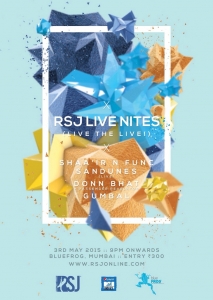
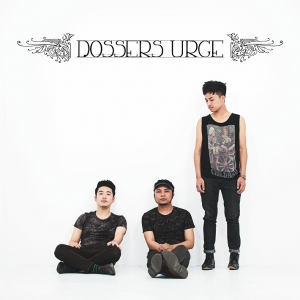
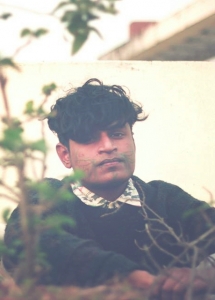
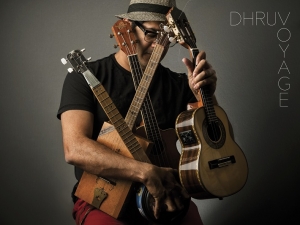
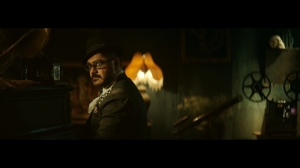
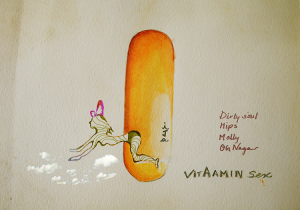

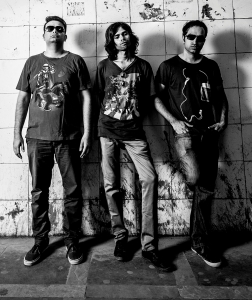

Leave a comment